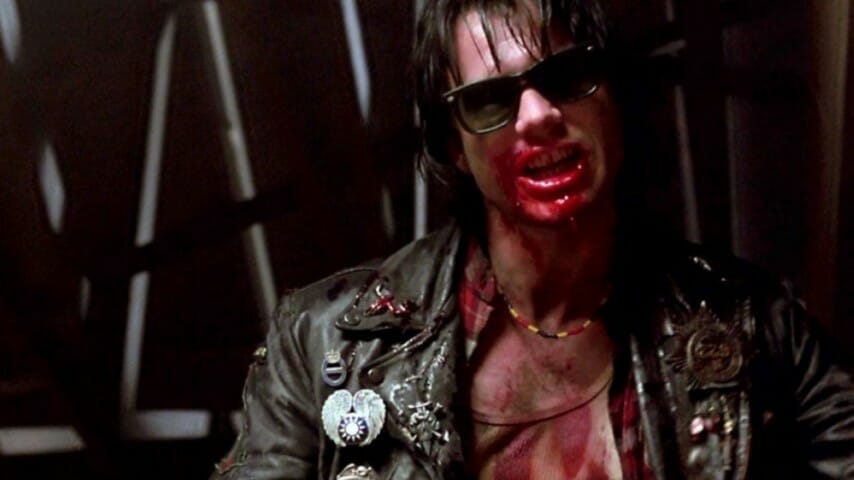ABCs of Horror: “N” Is for Near Dark (1987)

Paste’s ABCs of Horror is a 26-day project that highlights some of our favorite horror films from each letter of the alphabet. The only criteria: The films chosen can’t have been used in our previous Century of Terror, a 100-day project to choose the best horror film of every year from 1920-2019, nor previous ABCs of Horror entries. With many heavy hitters out of the way, which movies will we choose?
From the time of Dracula and until the 1980s, the American vampire film tended to imply a certain degree of pomp and grandiosity. The living dead were weathered old aristocrats locked away in the dungeons of a crumbling gothic castle or manor, wiling away infinity with their servants and occasionally preying on hapless local villagers to extend their endless lifespans. Vampires lived on the fringes of civilization, entrenched in the “old world” regardless of the time period of any given story—boogeymen from out of the past who stalked the wilds and rarely interacted with human society.
That changed, as the 1980s dawned and the gothic revival Dracula films of Hammer Film Productions gave way to a new wave of modern American vampire stories. Fright Night brought a yuppie bloodsucker to the affluence of American suburbia, while The Lost Boys set its teenage vampire coven among heavy metal youth culture. These stories took the stuffy old vampire out of the past, inserting the undead into modern settings that the audiences of the day could relate to, but none of them simultaneously manage to demystify the vampire quite so effectively as Kathryn Bigelow’s Near Dark.
Flying in the face of so many previous depictions, there’s very little beauty, romanticism or dignity to these vamps. They’re just a band of scuzzy drifters decked out in the garb of the American biker film, aimlessly trekking through the American West, tearing up dive bars and seeming to possess little if any idea of what they’d like to do with immortality. They have no grandiloquent plans to rule the world or overthrow our institutions—hell, they don’t even know where they’re sleeping tomorrow. They wield their powers carelessly, and inspire pity as much as they do fear—and really, wouldn’t that likely be the outcome, if you made the average person into a vampire? What do you think the locals down at your corner tavern would do with all that power, if they possessed it?
-

-

-

-

-

-

-

-

-

-

-

-

-

-

-

-

-

-

-

-

-

-

-

-

-

-

-

-

-

-

-

-

-

-

-

-

-

-

-

-








































